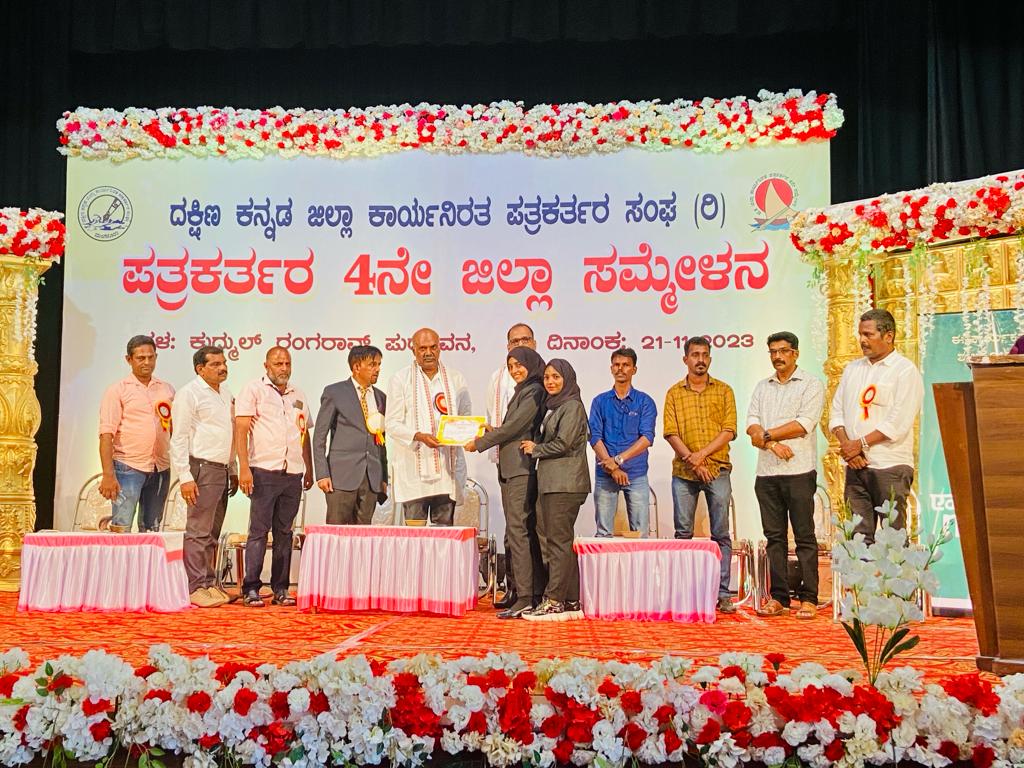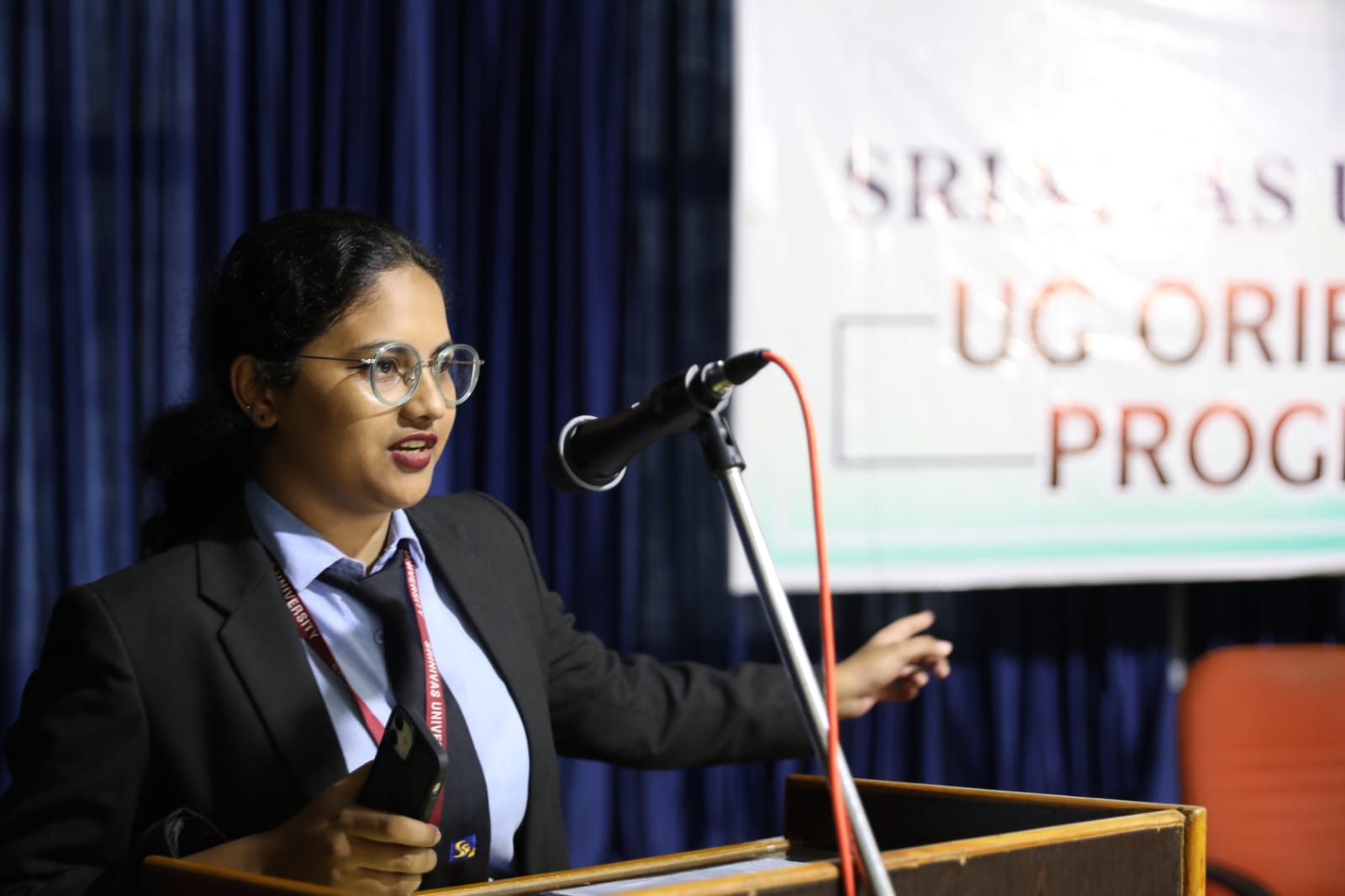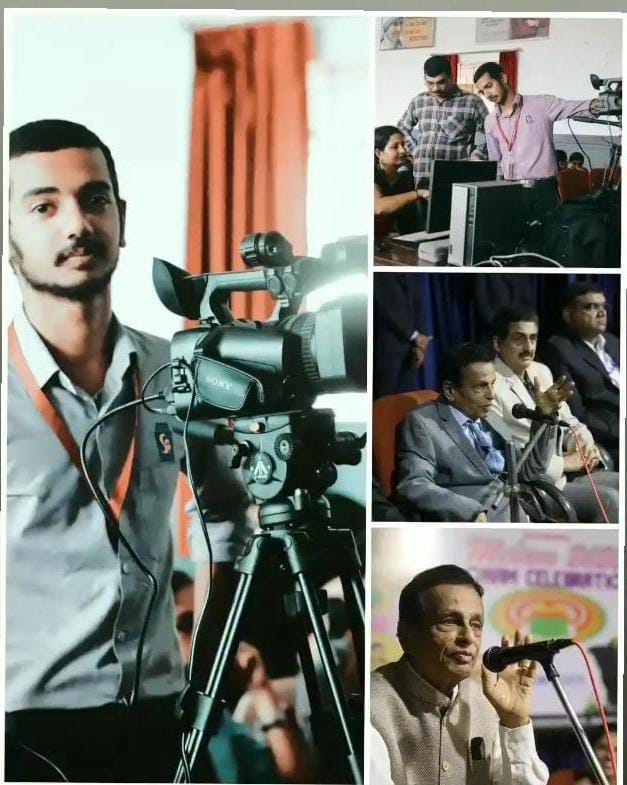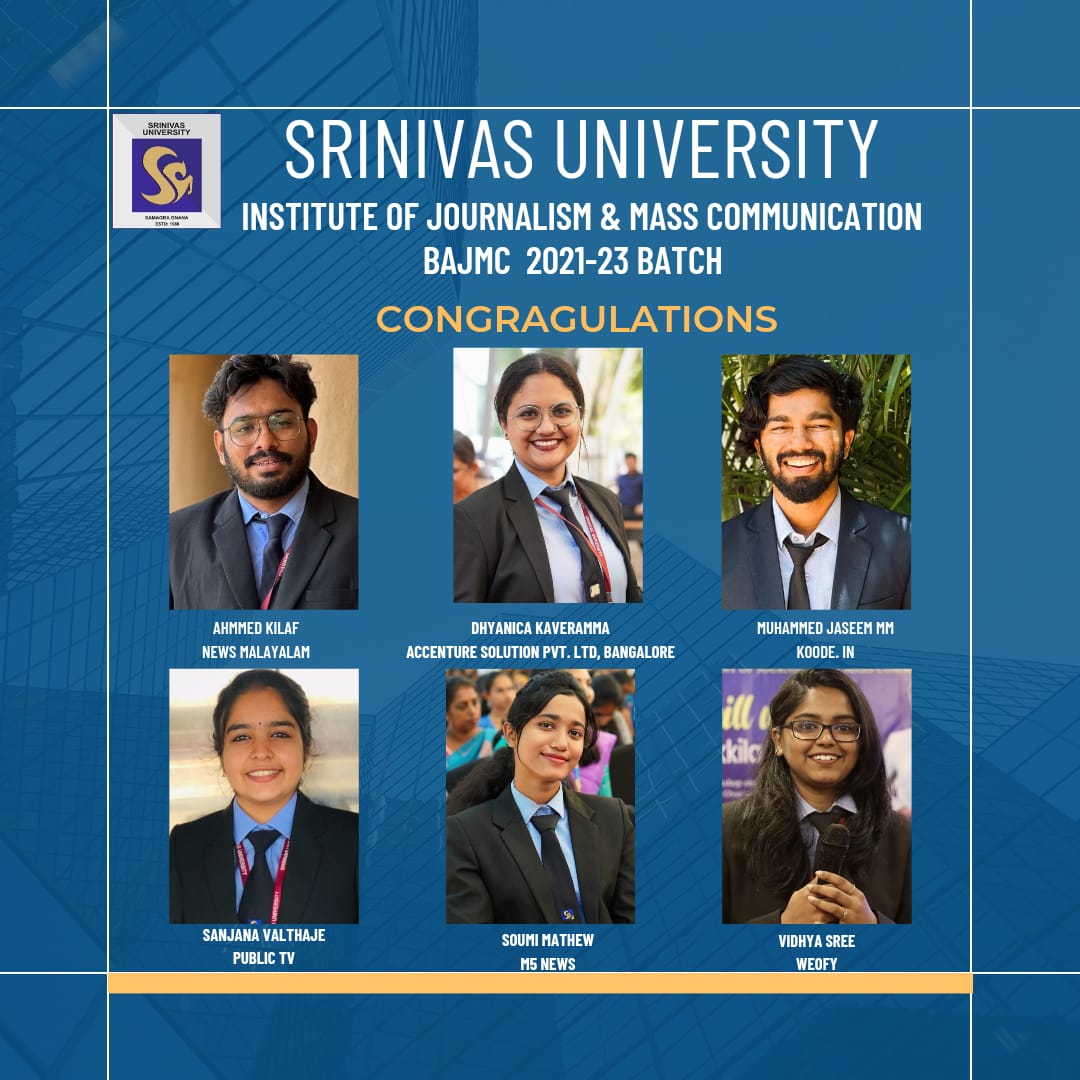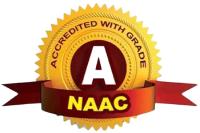BACHELOR OF ARTS IN JOURNALISM & MASS COMMUNICATION (B.A.J.M.C)
BACHELOR OF ARTS IN JOURNALISM & MASS COMMUNICATION (B.A.J.M.C)
Administrative Office No.: 0824-2425966
Duration: 3 years – 6 Semesters program (Admissions open for the batch 2025-26)
Eligibility: Pass in 10 + 2 / 12th Standard with minimum 50% marks. Admission needs a valid score in the SUAT Entrance Test.
About BAJMC PROGRAMME OF SRINIVAS UNIVERSITY:
B.A. Journalism and Mass Communication course at Srinivas University focuses on providing students with a comprehensive understanding of theory and practical knowledge. With a strong emphasis on practical training, our program is designed to be job-oriented, preparing students for a successful career in media and communications.
Our faculty members are highly specialized and bring a wealth of experience from the media industry to the classroom. Our well-equipped studios and lab facilities ensure that students receive hands-on training in various aspects of media production.
Throughout the course, students will be exposed to a wide range of subjects including print media, television media, radio, new media, advertisements, photography, videography, editing skills, page designing, anchoring, short movie production, and documentary making.
To further enhance their skills and knowledge, students will have the opportunity to undergo internships during their 3-year program. This hands-on experience not only builds self-confidence but also helps students establish valuable contacts in their areas of interest.
Upon completion of the degree, students will be well-equipped to pursue exciting opportunities in the media industry. Expertise from the field will also be brought in to conduct specialized classes, ensuring that our graduates are prepared to excel in their chosen career paths.
Join us at Srinivas University, Institute of Social Sciences and Humanities, and embark on a rewarding journey towards a successful Journalism and Mass Communication career.
Unique Features :
- Comprehensive credit-based curriculum.
- Two weeks Orientation Programme for fresh students.
- Seminars and Group presentations in all semesters to develop presentation skills.
- Workshops with industry professionals
- Written and Oral Communication proficiency enhancement incorporated in the curriculum
- Mini projects in all semesters to improve analytical thinking among students.
- Media Internship
- Programme/Event Management included in the syllabus.
- Digital Media Skills given focus.
- Technical Skills Training
- Focus on television and radio reporting, production, and anchoring
- Summer Placement to gain additional exposure during year-end vacation.
- Campus placement is arranged periodically.
- Well, planned Academic calendar
- Bridge course in preferred areas.
- Counselling and mentoring for weak students
- Opportunity for obtaining Educational loans for economically weaker students
- Periodic Seminars and Conferences
- Innovation in examination system
- Opportunity to pursue research
- Conveniently located in the heart of the city
- Well-equipped studio facility
- Xerox Centre and printing facility
- Study Material for all subjects
- Experienced faculty
- Cafeteria and Health Center
- Extended hours for Library and Computer lab
Special Features of the Programme:
- Classes will be held from 9.00 a.m. to 2.00 p.m. with half an hour break during week days.
- E-Study material will be provided from the college for every subject according to the syllabus.
- Industry oriented syllabus with special focus on experimental learning.
- Mini Project in each semester.
- Innovations in Examination System with opportunity for personal seeing of evaluated papers.
- Make up exams in every semester to avoid year loss.
- Placement support and research oriented projects for every student.
- Focus on smart skill development & training on competitive exams.
- Opportunity to visit various News Agencies
- Separate Hostel & Transport facility for Boys & Girls.
- Further opportunity to do Post Graduation, M. Phil., & Ph.D. Programmes.
Career Opportunities:
Journalist/Reporter Editor/Sub-Editor Columnist Anchor/News Presenter Radio Jockey Digital Journalist Social Media Manager Content Creator Copywriter Public Relations Specialist Brand Manager Film and Television Production Scriptwriter Photojournalist Videographer Corporate Communication Specialist Media Relations Officer Event Coordinator Publicity Manager Freelance Journalist Media Entrepreneur
Programme Structure:
| SEMESTER 1 | SEMESTER 2 | ||||||
| Sl. No. | Subject | Marks | Sl. No | Subject | Marks | ||
| 1 | Fundamentals of Communication | 100 | 1 | Business Communication | 100 | ||
| 2 | Micro Economics | 100 | 2 | Macro Economics | 100 | ||
| 3 | Fundamentals of Journalism | 100 | 3 | Mass Communication | 100 | ||
| 4 | Business Environment | 100 | 4 | Indian Society & Culture | 100 | ||
| 5 | Personality Development | 100 | 5 | Inter Cultural Communication | 100 | ||
| 6 | Indian Constitution & Environmental Studies | 100 | 6 | Media Information Security | 100 | ||
| 7 | Fundamentals of IT | 50 | 7 | Soft Skill Training | 50 | ||
| 8 | Visit to Domestic News Houses/ Agencies/ Publisher | 50 | 8 | News Agency Analysis | 50 | ||
| 700 | 700 | ||||||
| SEMESTER 3 | SEMESTER 4 | ||||||
| 1 | Print Journalism | 100 | 1 | Electronic Journalism | 100 | ||
| 2 | Media & Developments | 100 | 2 | Basic Media Research | 100 | ||
| 3 | News Writing Theory | 100 | 3 | News Editing Theory | 100 | ||
| 4 | Field Practicum | 100 | 4 | Field Practicum | 100 | ||
| 5 | Organizational Behaviour (Experimental Learning) | 100 | 5 | Stress Management | 100 | ||
| 6 | Media & Public Relations | 100 | 6 | Advertising Theory & Practice | 100 | ||
| 7 | Comprehension & Grammar | 50 | 7 | Practical- Photography & Video Production | 50 | ||
| 8 | Feature Writing- I (Parliamentary News, Business & Crime Reports) | 50 | 8 | Feature Writing II- (Sports Culture & Cinema Report) | 50 | ||
| 700 | 700 | ||||||
| SEMESTER 5 | SEMESTER 6 | ||||||
| 1 | Communication Technology | 100 | 1 | Internship& Dissertation to produce a News Magazine & Viva-Voce | 700 | ||
| 2 | Media Laws & Ethics | 100 | 2 | ||||
| 3 | Reporting Theory & Practice | 100 | 3 | ||||
| 4 | Trends in Journalism | 100 | 4 | ||||
| 5 | Media Management | 100 | 5 | ||||
| 6 | Indian Cinema | 100 | 6 | ||||
| 7 | Checking Plagiarism | 50 | 7 | ||||
| 8 | Press Report- Practical | 50 | 8 | ||||
| 700 | |||||||
Note:
(1) University Registration Fee, Eligibility Fee for other State/NRI students, Examination Fee, Uniform Fee, Hostel Fee, Industry visit fee, Internship fee, Transportation fee, Sports & games fee, Extra-curricular activity fee, etc., are extra. The course fees mentioned for subsequent years may vary annually up to 6%. (2) The University Placement & Training Team will assist the admitted students to get (a) Earn While Learn, (b) Industry Internship, and (c) Final Job Placement. (3) Karnataka Quota* : 1. Applicable only to Karnataka students having 50% or more in the applicable subject combination. 2. To be considered as Karnataka domicile student should have studied 7 years including PUC/Degree in the Karnataka.
